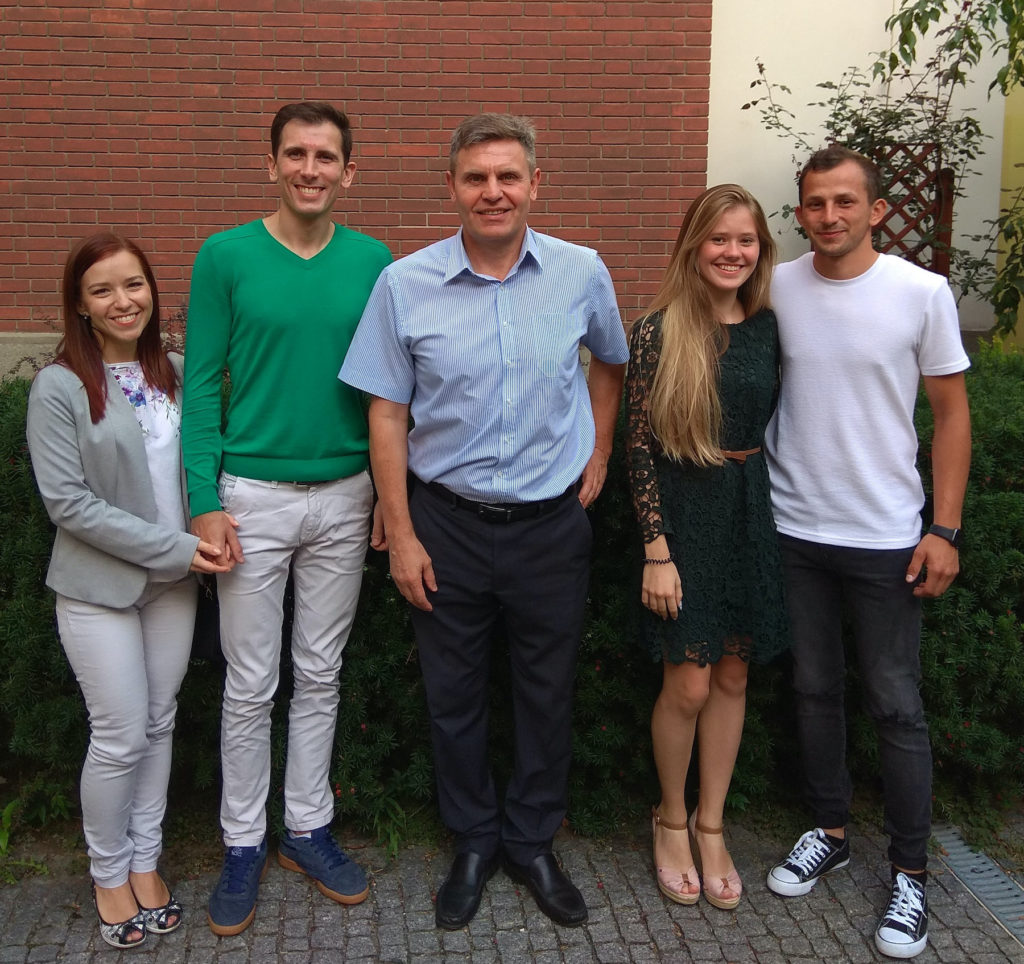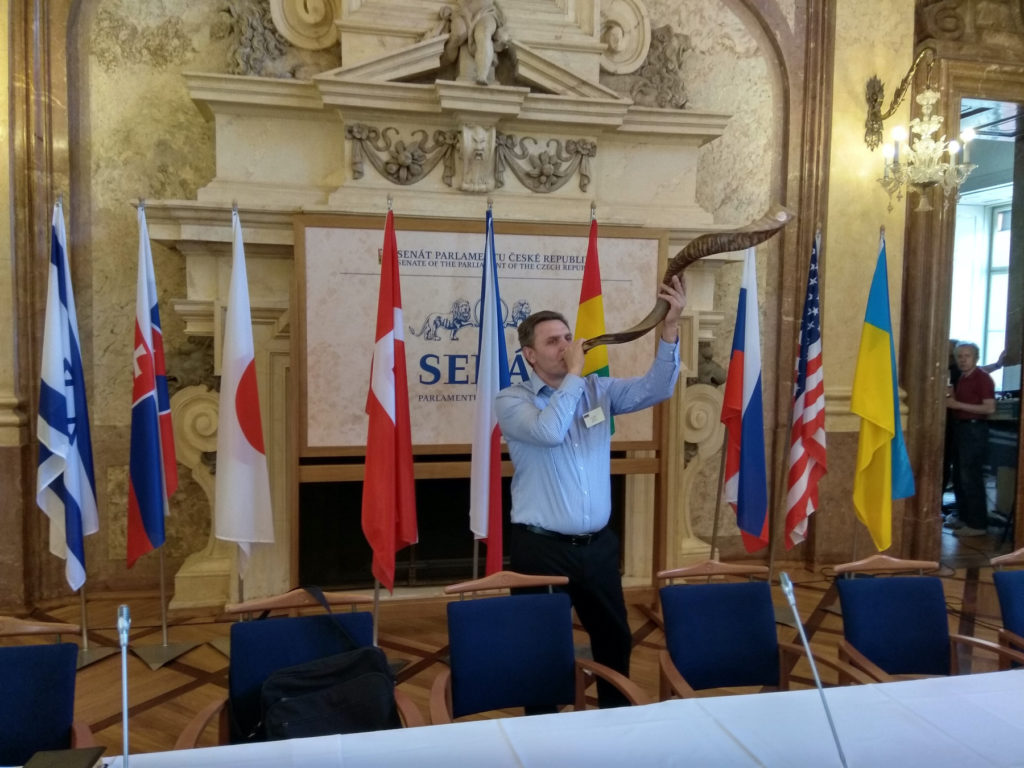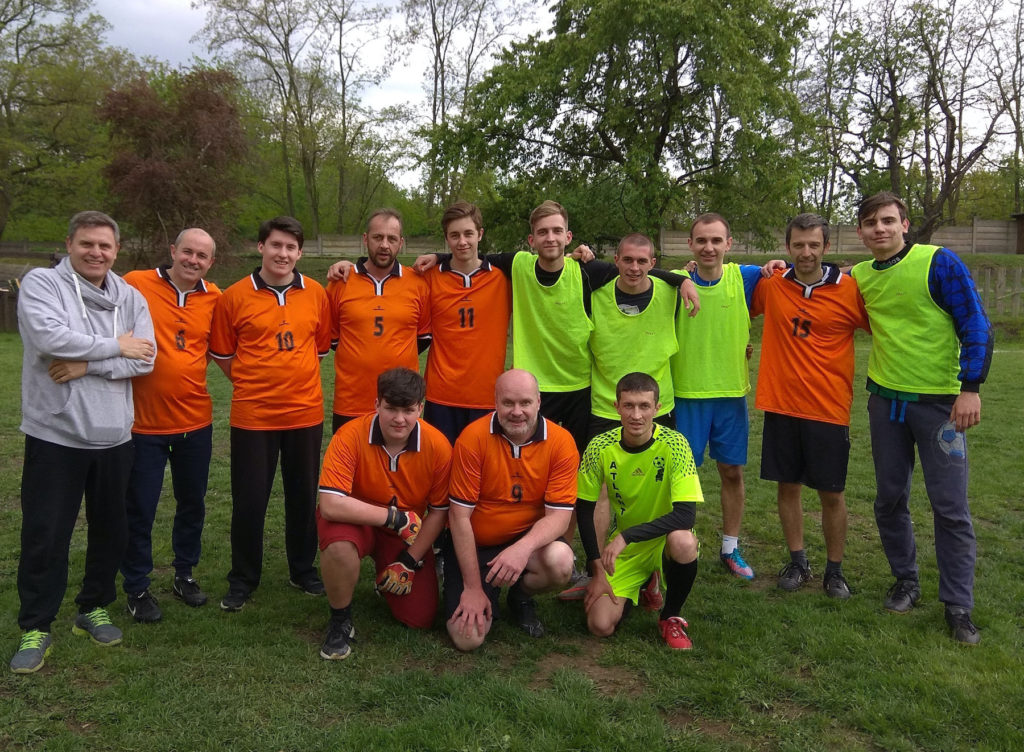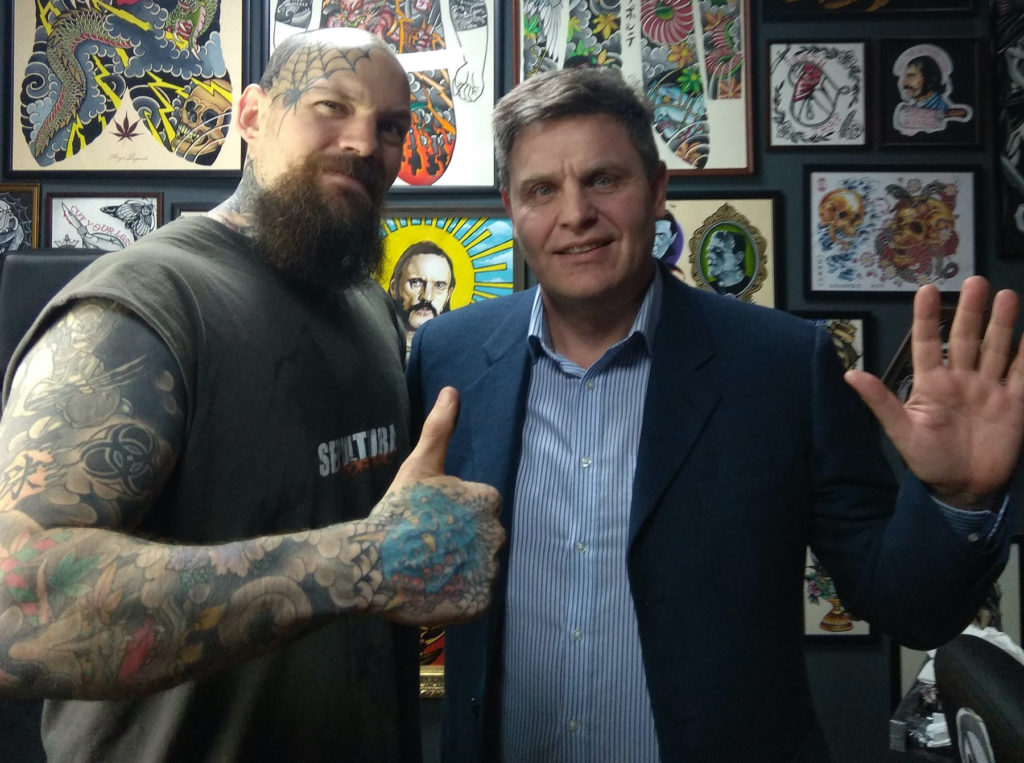Among the 23 local churches of the UMC in Czechia, there is also a Russian-speaking church. What does it mean for its pastor to make disciples of Jesus Christ for the transformation of the world?

His great-grandfather was persecuted for his faith in God, accused of being an enemy of the people, sentenced to death on Stalin’s orders and executed by firing squad in 1937. His grandfather, also a Christian and evangelist, was killed in the Second World War. His father, pastor of two Russian parishes, had been a German prisoner of war for three years. Therefore, it can truly not be claimed that Lev Shults, pastor of the Russian-speaking UMC in Prague, which was founded at the end of 2017, has an idealistic view of a life as disciple of Jesus Christ. But he, too, dedicates his life to the proclamation of the Gospel. In doing so, it is important to him to be open to new ways. “I am convinced that as a pastor and a missionary, I carry a certain responsibility to use every opportunity that God opens up to me to share the Gospel. “
It is precisely in treading new paths that Lev Shults had a formative experience: “If we make ourselves available to the Lord for His use, He will bring us in touch with all kinds of people, from the famous and respected to the simple and despised.” This encourages him to turn to people regardless of social status, education or nationality. For him these are only worldly standards anyway.
Therefore, when he talks to a former prime minister and companion of Václav Havel or a former defense minister, Lev Shults is convinced that he owes the Gospel to all people and that these well-known men are no less dependent on prayer than “any unknown homeless person who is struggling to survive another day”. Sometimes, such relationships with influential people help to open new doors. For example, Lev Shults has been offered the opportunity to be involved in the School of Fine Arts for Russian-speaking youth who seek to become part of the Czech community – by giving lectures on important figures in Czech church history, for instance. In the course of this teaching activity, however, he does not only speak about the lives of these people, but also about their faith in Jesus Christ, which drove them. Lev Shults is convinced: “This is the education these young people need, and it is our responsibility to provide it to them.” He also gives regular lectures at the Russian Center for Science and Culture, reaching new sections of the population.

On the other hand, Lev Shults also experiences how God sends him – together with others – to the poor and desperate and, if he is willing to follow this call, how God also gives him the means to help these people in their need. In these moments, living faith becomes concrete in a completely different way: in passing on food, clothing and other signs of hope and love.
As pastor of a Russian-speaking congregation in Czechia, Lev Shults also knows about the need for reconciled cooperation across the borders of cultures and nations: “I believe that Christians coming from different countries should always be able to find common ground in Jesus Christ.” That is why he calls it a blessing that in his church Russians and Ukrainians – despite the antagonism between their countries of origin – share a common journey. Because God is greater than all the politics of this world. But he is also aware of reality: “Unfortunately, not every Russian or Ukrainian church can claim the same.”

Another way to reach people with the Gospel across the borders of nations and cultures is through Bible based English classes. These courses are a good opportunity to invite friends who are secularized and hardly had any positive church experience so far. In a joyful community, they make steps in learning a foreign language, and at the same time they are introduced to pivotal aspects of Christian faith.
Finally, regular activities are organized for young people to build fellowship, strengthen relationships, and awaken faith: excursions, summer camps, table tennis tournaments, concerts… In 2019, a team also took part in a nationwide football competition of the Churches in Czechia – and even won the cup. A team of the Russian-speaking UMC that participated in the International Bible Championships in Prague in 2018 was similarly successful and finished third.

Lev Shults and the Russian-speaking UMC in Prague want to continue to perceive open doors and go where God sends them. It is their prayer that God will fill the many empty churches in the country, and that these buildings will not be visited primarily to take photos, but to meet God there.
Source: Pastor Lev Shults, Prague / Urs Schweizer, Assistant Bishop Patrick Streiff
